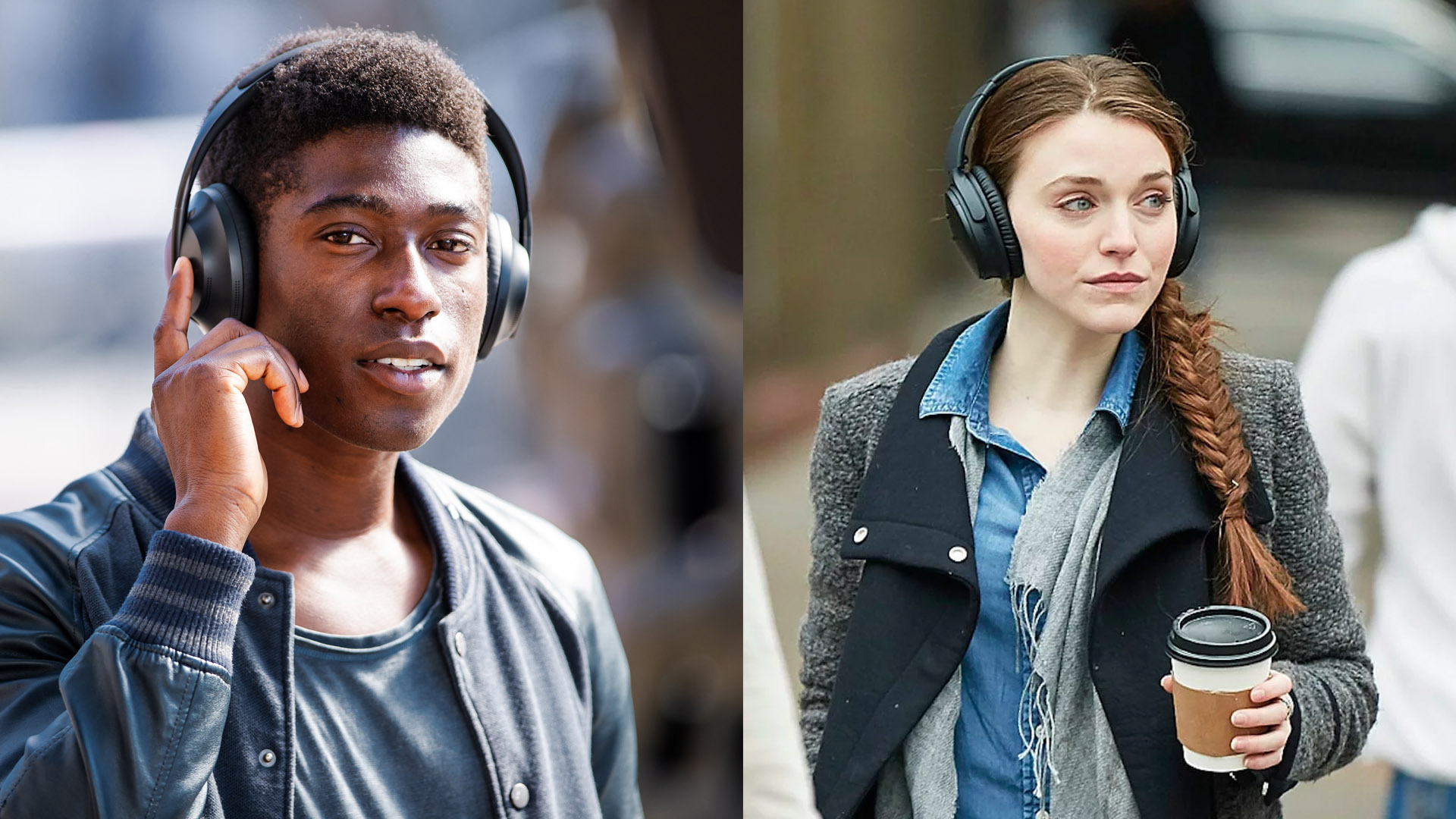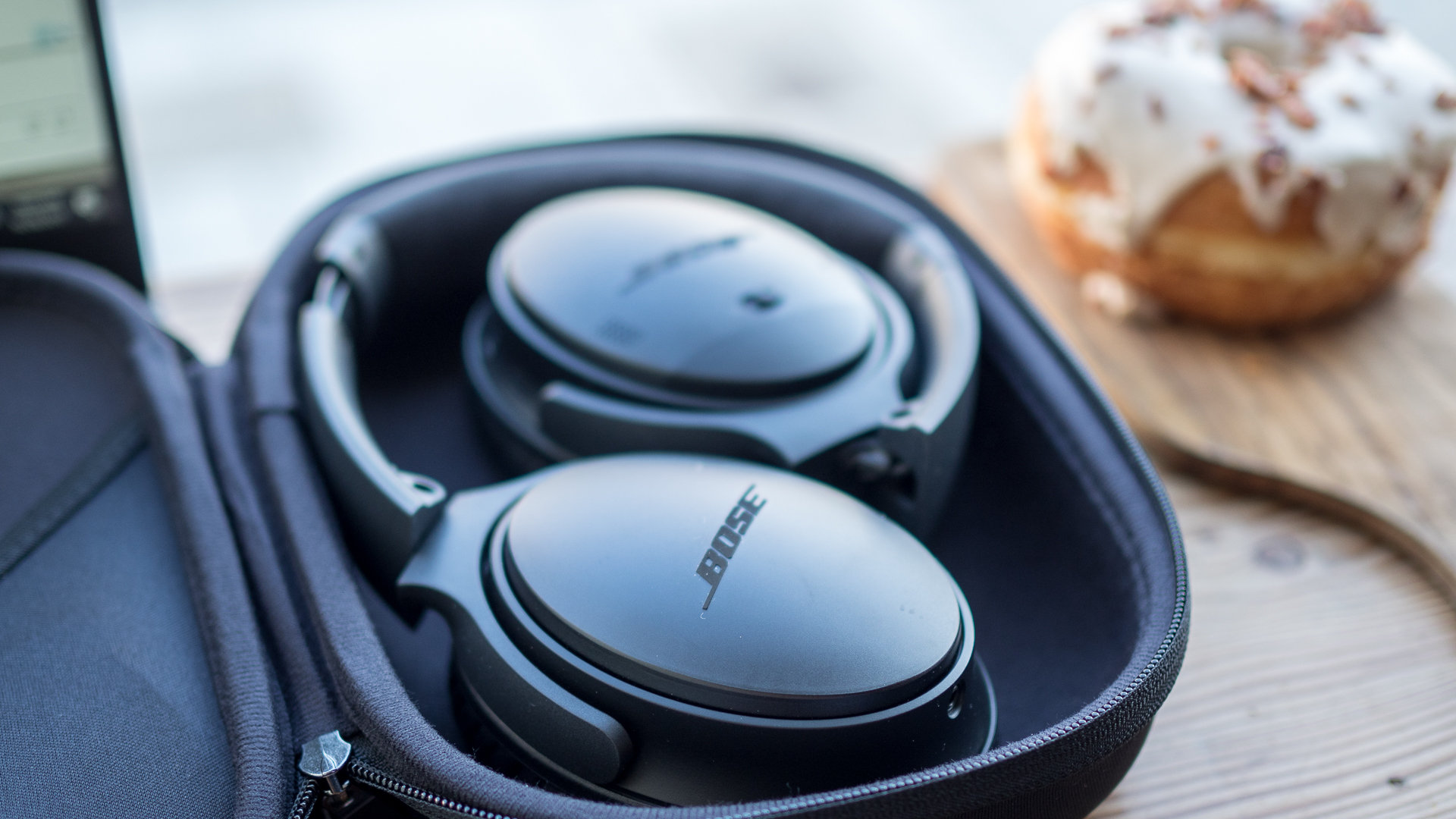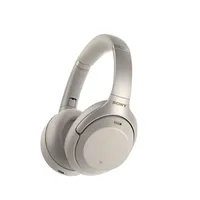Bose Noise Cancelling Headphones 700 vs the QuietComfort 35 IIs: how do they compare?
It’s the battle of the Bose

Sign up for breaking news, reviews, opinion, top tech deals, and more.
You are now subscribed
Your newsletter sign-up was successful
Over the years, Bose has made a name for itself by creating some of the best noise-canceling headphones on the market; and now the audio brand hopes to continue that legacy with the new Bose Noise Cancelling Headphones 700.
They follow on from Bose’s highly-rated QuietComfort 35 II noise canceling headphones. Despite the popularity of the QuietComfort range, the new Headphones 700 are shaking things up with an all-new sleek design, and what Bose says is “breakthrough” noise cancelation technology.
So, which model is best for you? We take a look at the pros and cons of the wireless headphones so you can make an informed choice.
What you need to know about Black Friday 2019
It's no secret that Black Friday and Cyber Monday are some of the best times to find fantastic wireless headphone deals. Usually you'll find that mid-range brands like Optoma and Jaybird get the biggest discounts at retailers like Amazon, but it's worth bearing in mind that Bose, Sony, and Sennheiser have all recently released new noise-canceling models – and that means older models could be discounted. Make sure you bookmark our Black Friday deals page for the best noise-canceling headphones deals as they come in.
Price and availability
The Bose Noise Cancelling Headphones 700 cost $399 in the US, and will be available for £349.95 when the launch in the UK on July 11. We’re still waiting on official Australian pricing and availability, but this works out at around AU$575 based on current conversion rates.
That’s about $50 / £20 more expensive than the Bose QuietComfort 35 II headphones, which cost $350 (£330 / AU$500) at launch. It’s worth bearing in mind that the QC35 IIs could discounted during the Amazon Prime Day sales. The event kicks off on July 15 and will last for 48 hours, so keep your eyes peeled for any Bose headphones deals.
- The best cheap Bose headphones sales and prices on Amazon Prime Day 2019

Design
Check out TechRadar's exhaustive guides to the best headphones, including the best over-ear headphones, best on-ear headphones and the best in-ear headphones.
For some more specialist pairs, take a look at our guides to the best wireless headphones, best true wireless earbuds, best wireless earbuds, and the best noise-cancelling headphones.
Need a specific brand? We have guides to the best Sony headphones, the best Bose headphones, and the best Audio-Technica headphones.
Looking for some headphones you can work out with? Check out our guide to the best swimming headphones and the best running headphones.
The design of the two headphones are strikingly different; the new Bose Noise Cancelling Headphones 700 eschew the clunkier build of its older sibling, getting rid of the pleated earcups, visible hinges, and bulky hardware.
The Bose QuietComfort 35 IIs on the other hand, have a build that’s more reminiscent of professional studio headphones – they don’t make as much of a statement as the 700s, but they might feel more sturdy.
Sign up for breaking news, reviews, opinion, top tech deals, and more.
Coming in black and silver, the Bose headphones 700 are based on a one-piece design; the stainless steel headband elegantly giving way to soft oval earcups with touch-sensitive housings.
They’re very lightweight, which is ideal if you’re going to be wearing them all day; however, that light build can feel a little flimsy, which is a problem both models suffer from.

On the outside of the earcups there are a few preset buttons (more on those later); however, the majority of the Headphones 700’s functionality can be controlled using the touch-sensitive outer housing.
These controls feel pretty intuitive; simply swipe your finger up and down to control the volume, side to side to skip tracks, and tap twice to play and pause your music.
The QuietComfort 35 IIs however, rely on physical buttons for playback control; you have a power and pairing slider on the right earcup, as well as buttons for volume up/down and playback. The left earcup houses just one button for Google Assistant, though you can remap the button to toggle noise cancelation levels using Bose’s Android or iOS app.
Both headphones models come with traveling cases, but fold differently; the Bose Noise Cancelling Headphones 700 fold flat, while the QuietComfort 35 IIs fold inwardly.
Noise cancelation
Let’s start with the Bose QuietComfort 35 IIs – these headphones continued Bose’s legacy of creating brilliant noise-canceling headphones, and they do an excellent job of drowning out everything from the rumble of a train to muffling voices in the street you’re walking through.
Headphones like the QC 35 IIs can be really effective if you’re listening to music. If you’re making a phone call however, the person you’re speaking to can still hear everything that’s happening around you – which is where the Bose Noise Cancelling Headphones come in.
Using an innovative eight-microphone system, these cans not only make your music sound better, but they also make your voice sound clearer to the person on the end of the line during phone calls. We saw this feature in action at a demonstration, and it seems to work astonishingly well.
So, if you make a lot of phone calls using your headphones, the Bose Noise Cancelling Headphones 700 could be a more logical investment than their predecessors.
There are 11 noise cancelation settings (the QC35 II’s have three by comparison), which can be controlled via the Bose app; three of which can be selected as presets and toggled through using the physical button on the earcup.
We had the chance to test out some of the noise cancelation settings briefly, and we were impressed with how capable these headphones are at blocking out unwanted environmental sound.
Of course, without carrying out our full testing process it’s hard to say whether the Headphones 700 have better noise cancelation capabilities than the QuietComfort 35 IIs – but we can say for certain that the ANC on offer with the newest cans is more sophisticated than ever before.

Battery life and connectivity
Both the Bose Noise Cancelling Headphones 700 and the QuietComfort 35 IIs boast an impressive 20-hour battery life, and have a wireless range of 33 feet.
The Bluetooth technology supported by the newest cans is 5.0, a step up from the QC 35 II’s support for Bluetooth 4.1. This means you may find that the connection is more reliable with the 700s; saying that, we didn’t experience any connection dropouts while testing the older model.
Both models sport a 3.5mm jack, which means you can listen to them with a wired connection; some audiophiles believe this provides a superior level of audio quality compared to wireless listening, although these days, the difference is negligible if you’re using the best wireless headphones.

Smart features
The Bose QuietComfort 35 IIs were the first in the QuietComfort line to get a voice assistant built-in – in this case, Google Assistant.
To summon Google’s voice assistant, you simply have to press on the dedicated button and then speak to it as normal. As with any Google Assistant device, you can ask it to read headlines, add reminders, or myriad other questions. The Assistant will also read you your notifications as they come in, which is a nifty feature but may be redundant if you have a smartwatch already.
We found using Google Assistant with the QC 35 IIs to be pretty seamless during our testing, and we were impressed by the speed and accuracy of Google Assistant and how well the headphones were able to pick up our voice even on a crowded train and coffee shop.
Of course, the Bose Noise Cancelling Headphones 700 should be even better at picking up your voice if that eight-microphone system works as well as Bose claims.
They’re also a little more agnostic when it comes to voice assistants – you can use the dedicated button to summon Google Assistant or Apple’s Siri if you have an iPhone, after which you just need to use your voice as normal to give commands.
New to these cans however, is the ability to talk to Amazon’s Alexa right off the bat; by just saying Alexa’s wake word (which is ‘Alexa’, if you didn’t know already), the virtual assistant is summoned automatically. We haven’t tested this feature yet, but we will be sure to do so when we carry out our full review of the 700s.
So, if you have Alexa-compatible devices around your home already, the Bose Headphones 700s could be a convenient tool for controlling your smart home.
As both headphones support voice assistance, so which one is best for you comes down to which ecosystem you tend to use more – Apple, Google, or Amazon.
Sound quality
When we briefly tested the Bose Noise Cancelling Headphones 700, a spokesperson for the brand told us that the sound quality is comparable to that of the QuietComfort 35 IIs.
We need to spend more time with the headphones to make a true assessment of the sound quality on offer here, but the tracks we did hear sounded well-balanced, rich, and detailed – just like the QC 35 IIs.
However, we didn’t think the sound quality provided by the QuietComfort 35 IIs was extraordinary enough to be class-leading. While tonal balance is relatively neutral with a slight mid-bass bump, we found the sound to be somewhat soft when compared to the best noise-canceling headphones like the Sony WH1000X M3.
Takeaway
Without carrying out our full review process, it’s hard to say which of Bose’s noise-canceling headphones is superior – but it’s still possible to make an informed buying decision based on the specs on offer, as well as the design of both models.
The Bose Noise Cancelling Headphones 700 offer a sleeker design, more choice when it comes to voice assistance, and more sophisticated noise-canceling technology, but they are also $50 more expensive than the QuietComfort 35 IIs.
- The best noise-canceling headphones of 2019

Olivia was previously TechRadar's Senior Editor - Home Entertainment, covering everything from headphones to TVs. Based in London, she's a popular music graduate who worked in the music industry before finding her calling in journalism. She's previously been interviewed on BBC Radio 5 Live on the subject of multi-room audio, chaired panel discussions on diversity in music festival lineups, and her bylines include T3, Stereoboard, What to Watch, Top Ten Reviews, Creative Bloq, and Croco Magazine. Olivia now has a career in PR.
